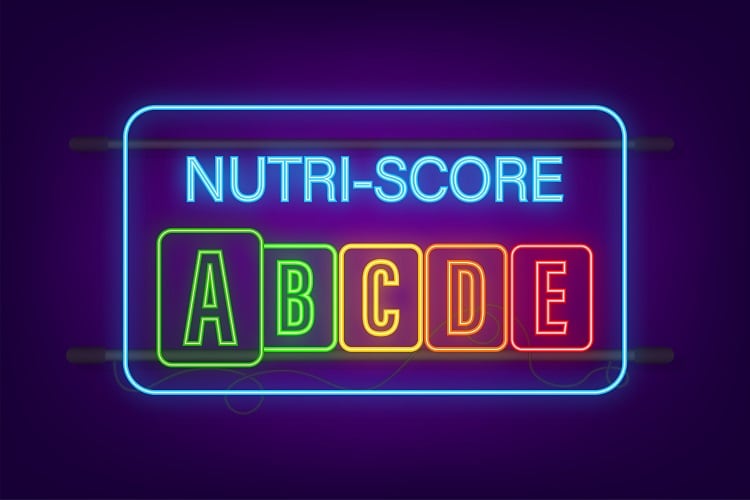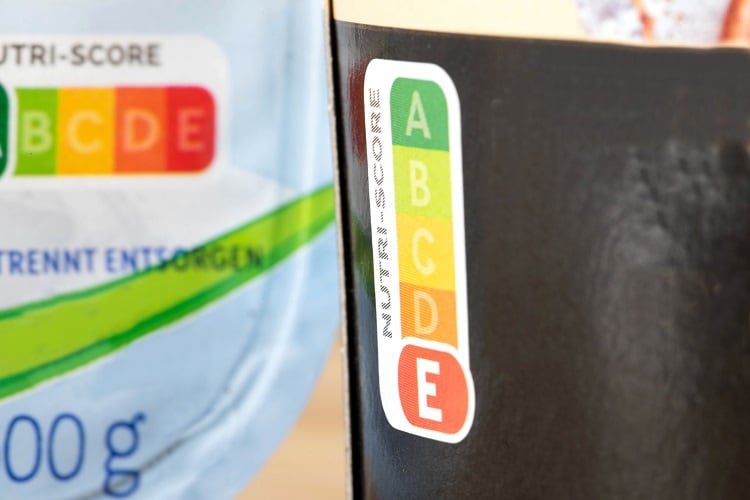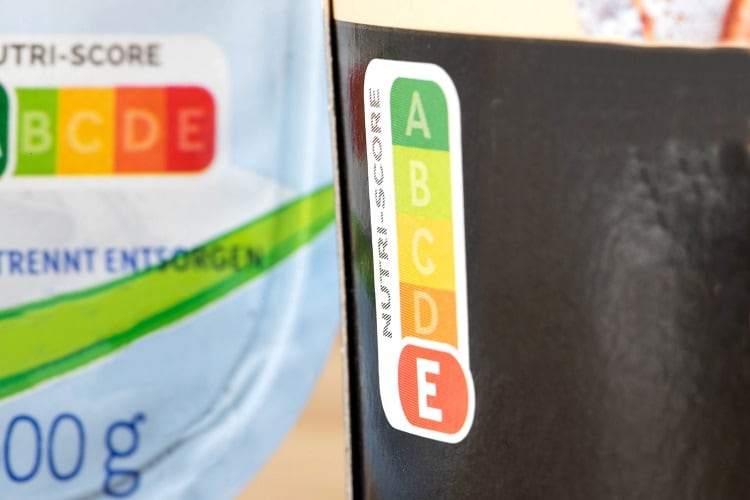In line with the EU Farm to Fork Strategy, the Commission said it would submit a proposal for harmonised mandatory front-of-pack nutrition labelling by the end of the year.
With half of adults in the EU being overweight, and with many health problems related to unhealthy diets, the aim of the EU-wide labelling scheme is to make the ‘healthy choice the easy choice’ for consumers.
The end of the year is fast approaching, and it’s expected the Commission will submit its proposal in the coming weeks. As the countdown begins, the debate for-and-against one of the most popular contenders in the labelling scheme race – Nutri-Score – is heating up.
Nutri-Score: a popular contender in the nutrition labelling race
Nutri-Score ranks food from -15 for the ‘healthiest’ products to +40 for those that are ‘less healthy’. Based on this score, the product receives a letter with a corresponding code: from dark green (A) to dark red (F).
Developed in France, the nutrition labelling scheme was first adopted for voluntary use and implemented in 2017. Since then, a number of Member States and food and beverage brands have voluntarily adopted the scheme.
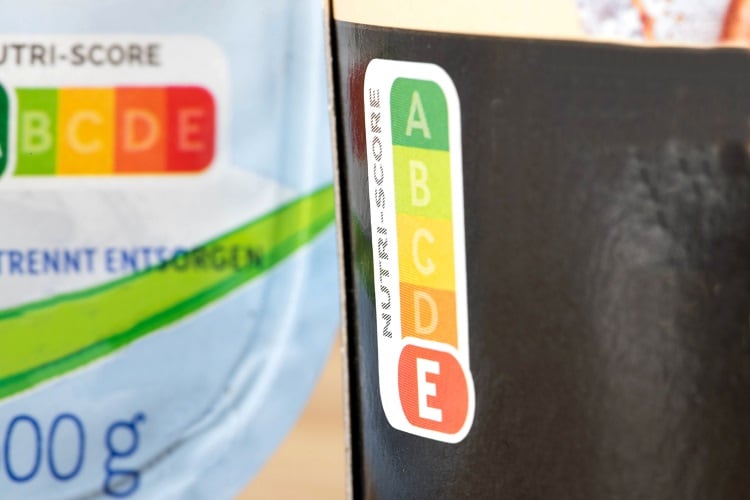
So far, the label has been judged to perform ‘well’ by the Scientific Committee of the Nutri-Score (ScC) – made up of Members States Belgium, France, Germany, Luxembourg, the Netherlands, Spain, and Switzerland.
Several research studies suggest Nutri-Score is a beneficial tool – and for a variety of reasons. The International Agency for Research on Cancer (IARC), for example, judges Nutri-Score to be the most effective nutrition label in helping lower risk of non-communicable diseases (NCDs), a survey conducted by Public Health France (Santé Publique France) found that Nutri-Score is having an impact on the purchasing habits of consumers, and recent research out of Germany suggests Nutri-Score can prevent products from appearing healthier than they are.
From an industry perspective, some companies are rallying behind EU-wide adoption of Nutri-Score. Nestlé, Danone, and Fleury Michon, for example, publicly campaigned for its adoption in a letter to the Commission in 2020. From the retail sector, Carrefour Belgium, Albert Heijn, the Dutch Food Retail Association, as well as Kaufland and Lidl in Germany, also joined the mass call.
Yet in France, now five years on since its voluntary adoption, uptake is still not as high as some would like. Consumer organisation Union Fédérale des Consommateurs (UFC-Que Choisir) has remarked that the Nutri-Score label is still absent from 40% of food products on the national market, and is campaigning for change.
Display Your Nutri-Score!
This week. UFC-Que Choisir launched the Affiche Ton Nutri-Score ('Display Your Nutri-Score') campaign, calling out brands that haven’t yet voluntarily adopted the labelling scheme and pushing for a mandatory, EU-wide rollout.
Too many industry players continue to refuse the Nutri-Score label, according to the consumer organisation. Popular products that haven’t yet adopted the scheme in France include Coca-Cola, Ferrero’s Kinder ‘Chocolat’ bars, and Mondelēz International’s ‘Original’ Oreos, claims UFC-Que Choisir.

The organisation hopes that its Affiche Ton Nutri-Score campaign will help to reduce the 40% of food products that haven’t yet adopted the scheme in France, and that ultimately, Nutri-Score will become the Commission’s scheme of choice: “UFC-Que Choisir urges the European Commission to make the Nutri-Score mandatory.”
The European Consumer Organisation (BEUC), of which UFC-Que Choisir is a member, has welcomed the campaign. Senior Food Policy Officer Camille Perrin took to social media to voice her support: “Many food companies are still not displaying the label, time to call on them to #AfficheTonNutriScore.”
Yet not all share UFC-Que Choisir’s view. This week also saw Nutri-Score condemned during a European Parliament debate – hosted by Spanish MEP Jordi Canas and think tank Competere – for being ineffective and out-of-date.
Nutri-Score is 'in the past'
On 12 October, representatives from nutrition science, industry, and consumer organisation backgrounds gathered to discuss the Commission’s front-of-pack labelling reform, where the labelling scheme’s algorithm was described as ‘too simple’ and lagging behind modern science.
Schemes founded on simplified scores, such as the Nutri-Score, don’t actually help people who suffer from certain disease linked to sodium, sugar, saturated fats or sugars, according to Professor Ramon Estruch of the University of Barcelona.
“Nutri-Score focuses on what is bad about food. The algorithm calculates its grade, giving 40% weight to the negative effects of a food, and only 15% to the positive effects.”
People who have special dietary needs require information, he suggested, in order to make an informed choice based on their medical needs. According to Prof Estruch, personal nutrition is the optimal path.
The ‘simplicity’ of Nutri-Score was also attacked by European Parliament MEP Herbert Dorfmann. “Nutri-Score is simple, and too simple. It makes obvious mistakes.”
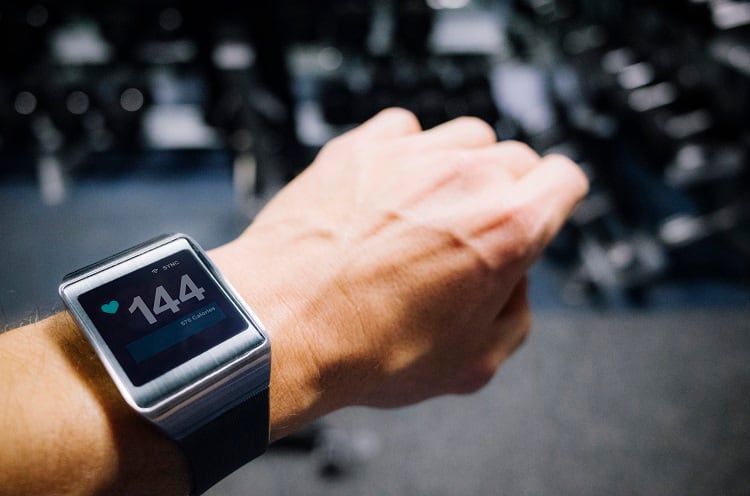
Personalised nutrition, as opposed to one algorithm for all, is also the optimal solution for Pietro Paganini, founder of think tank Competere. “Science is moving in the direction of personalised diets. Your smart watch is linked to your fridge, your metabolism and the supermarket. This is a great revolution in nutrition, where research on DNA and genetics is leading us towards personalised diets.”
Nutri-Score, he stressed, ‘is the past’. “It’s a one-size-fits all scheme that is the old Hegelian model where an elite group of scientists approve an algorithm that claims to be perfect and applicable to everyone.
“Yet, when political or commercial interests decide so, the algorithm can be changed, and grades for selective products can go from red ‘E’ to yellow ‘C’.”
Competere expects the Commission to present its proposal for a harmonised front-of-pack nutrition labelling scheme in early 2023.


